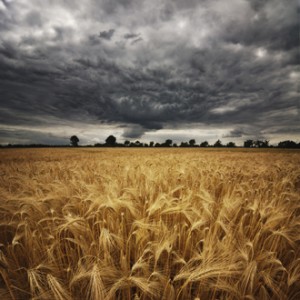
By Doug Sweet
Gut-wrenching pictures of starving people in the developing world and dramatic images of endless lines of people in the Philippines queuing for rice – rice! – in one of the world’s normally great rice-producing regions told Chandra Madramootoo it was time to do something.
McGill’s Dean of Agricultural and Environmental Sciences knew this spring there was a serious problem with the world’s food supply.
“When people in Asia are lining up for rice, you know there is a crisis,” he said. “When there are riots over food in Haiti….”
Canada, he observed, rich in food and water and land and resources, had been extremely slow to react to the burgeoning crisis that was grabbing headlines worldwide. Other G8 countries had been pushing a food agenda but Canada lagged. “There’s still has been no governmental reaction,” Madramootoo said in an interview last week. “Despite a lot of pressure from NGOs and food aid groups, we haven’t seen a response.”
But what to do? Madramootoo thought it was time to get people who knew what they were talking about talking together. Knowing international conferences normally take years to organize, he began to pull together a global conference on the security of the food supply that would have to take place in a matter of months. It will be held at McGill’s New Residence Building from Sept. 24-26.
Madramootoo quickly got some high-level help at McGill from former Prime Minister Joe Clark (now a Professor in McGill’s Centre for Developing Area Studies) and Chancellor Dick Pound, who agreed to act as co-chairs. And then he began to build a list of international experts and heads of organizations who form the backbone of the conference.
“I can’t count how many times a day Joe Clark has sent me ideas for this,” Madramootoo said. “The man is deeply engaged. He’s got me engaged.”
It is perhaps the only conference of its kind on this crisis to be held so far anywhere in the world. While there have been government-to-government gatherings to discuss problems with the rising cost of food, the effects on agriculture of climate change and the role changing dietary habits in the developing world have played in altering the food supply, Madramootoo has found no evidence of another conference that will draw together governments, academics, NGOs, the food industry and agricultural experts.
“I was hoping to develop a bit of rigour and analytical thought to help prompt some kind of response” from Canada he said. “I hope we can mobilize Canadian resources – money, goods and services. … We have been seen regarded historically as the world’s breadbasket. I think we have an obligation to play a leadership role in helping to solve this crisis.”
The list of organizations and their leaders that signed on to participate has floored Madramootoo.
“I was very surprised by the overwhelming response to my request for participation,” he said. “ I was never expecting that level of engagement. It’s engagement at the very highest levels. … The cross-section is just absolutely remarkable.”
Leaders and representatives of organizations from around the world will travel to Montreal next month. They represent some of the world’s most important international organizations devoted to agriculture and food matters, and they come from Africa, Asia, Europe and North America. There will be people there to tell horror stories of shortages and riots and hunger. There will be others who will tell of successes, of how countries in desperate straits managed to find inventive ways to to feed their people. Above all, Madramootoo hopes, they will be there to talk about solutions to the crisis.
Even though media around the world have moved on to other subjects, and the price of oil has stopped setting new records every other day, the global food crisis is far from over, Madramootoo said.
“Commodity prices and food prices have remained high. We’re just not hearing about it, but it’s still there.
“Governments in the developing world are going broke trying to feed their people.”
For more information on the conference, including the list of participants and how to register, visit http://www.mcgill.ca/globalfoodsecurity/
